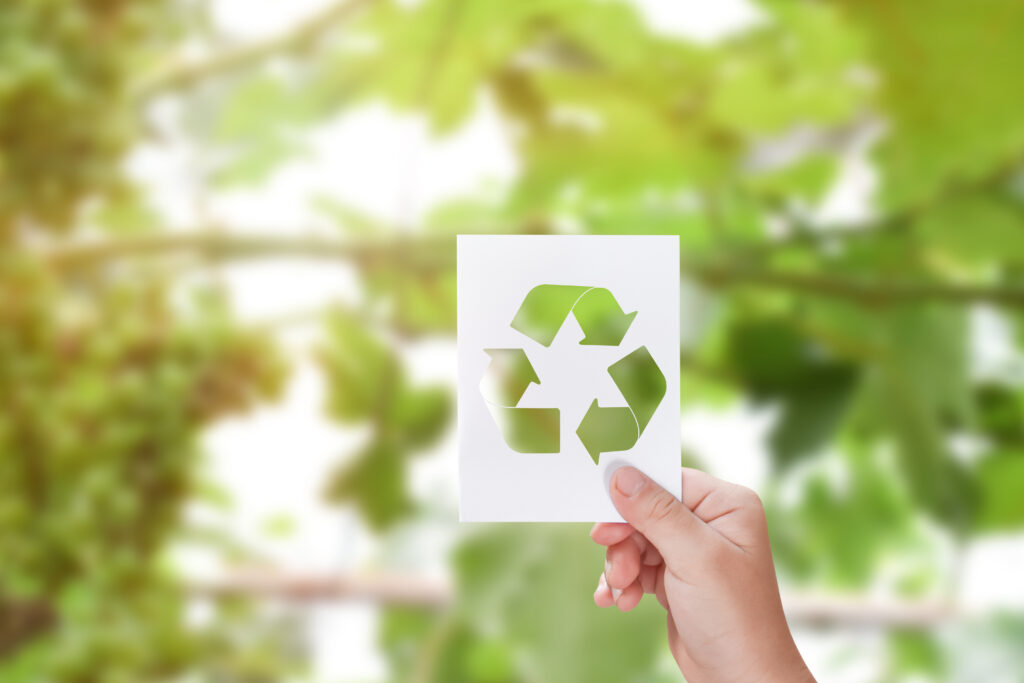With the realisation of humans’ influence on global warming, new frameworks have been put in place to achieve sustainable progress. Among them, circular economy aims to decrease the use of new resources and the creation of waste, opting instead for reusing, recycling, repairing, and sharing methods to implement a ‘closed-loop system’. Circularity, in contrast to the more traditional ‘linear economy’, where resource extraction is followed by consumption and ultimate waste, has gained traction within the European Union, especially since the 2015 Circular Economy Action Plan. Circular economy is now a key instrument of the European Green Deal. While these tools, among others supporting the green transition, mainly concern EU Member States, neighbouring countries aspiring to join the EU must align their policies and legislation with the EU’s circular economy goals. The Western Balkans, given their decades-long efforts to integrate in the Union, are motivated to respect the Paris Agreement and achieve the EU’s targets of opting for renewable energy sources, reducing greenhouse gas emissions, and facilitating efficient waste management.
Current state and challenges of circular economy in the Western Balkans
A majority of Western Balkan countries spent the late 20th century under dictatorships or conflicts, delaying economic and democratic transitions and remaining far behind EU living standards. Circular economy as a framework for tackling environmental and economic challenges has not been prioritised. The region faces, however, accelerating climate change: temperatures rose by 1.2°C on average in the last 50 years, with scenarios predicting increases of 3.5-7°C by the end of the century. Hindrances to circularity include inadequate infrastructure, fragmented legislation, and limited public awareness.
Energy sources heavily rely on coal, accounting for 70% of electricity production—except Albania, which largely depends on hydropower (as reported by the European Commission’s Joint Research Centre). This predilection for non-renewable resources results in carbon emissions over three times the EU average in 2020, highlighting the need for systemic change.
Waste management is another pressing issue. The European Environmental Bureau highlights that recycling rates are critically low, with Albania at 18.7% and Bosnia and Herzegovina at just 0.29%. Illegal waste treatment and landfills remain widespread, with Kosovo alone counting more than 1,600. Efforts to meet EU targets of 65% municipal waste recycling by 2035 and 70% packaging waste by 2030 remain sluggish.
Legislative reforms across the Western Balkans are evolving at different rates and obstacles usually persist. While in Bosnia and Herzegovina the introduction of extended producer responsibility for packaging waste and electrical waste marks a crucial first step toward circularity, North Macedonia’s National Waste Management Plan (2020-2030) has registered a slow progress, failing to align with EU standards.
The EU’s role as a driver for reforms
Undoubtedly, the EU plays a pivotal role in setting goals and driving reforms in the Western Balkans. A major element concerns the so-called acquis communautaire, the body of laws, principles and obligation that are essential for EU accession. Chapter 27 on the environment, in particular, makes reference to over 200 legal acts on water and air quality, waste management, industrial pollution control, and circular economy. Harmonisation of policies and legislation from the six countries is not limited to adoption of laws; it also entails the implementation of such measures, often with significant investments in infrastructure but also in long-term education.
The EU therefore uses conditionality as a powerful tool to ensure not only compliance with its green targets, but also deep reforms for the candidate countries. With the introduction of the Commission’s New Growth Plan for the Western Balkans in 2023, €6 billion are being allotted in conditional loans and grants, of which 37% are earmarked for climate action. This ‘green conditionality’, while allowing for the financing of innovative and sustainable reforms, poses risk as withholding funding due to progress obstacles could hinder genuine developments.
More specifically on circular economy, the EU’s 2015 and 2020 Circular Economy Action Plans serve as a blueprint for the Western Balkans to introduce both legislative and non-legislative measures for better production, consumption, waste management and investments for a closed-loop. With over €10 billion allocated for the transition (2016–2020), these measures demonstrate the EU’s role as a motor for circularity, fostering sustainable growth.
Recent development and future paths
While the way toward a more tangible realisation of circularity in the region is surely driven by the support of the EU, other mechanisms provide opportunities worth mentioning, both at the multinational and local level. The Organisation for Economic Co-operation and Development (OECD) enables circular economy projects, supporting the participatory design of national roadmaps, strengthening institutional capacities, and stimulating knowledge exchange through a Regional Circular Economy Peer Dialogue platform.
At the local level, initiatives mirror State efforts in innovative ways. According to the European Environmental Bureau’s Guidelines on Circular Economy for the Western Balkans, in Bosnia and Herzegovina, private-sector projects like Omorika Recycling advance polyethylene terephthalate (PET) recycling, exporting 97% of its output. Civil initiatives in Mostar advocate for safer landfills. In Kosovo[1], Plastika Company recycles plastic for agriculture and construction, while Tiki Mosaic creates tiles from glass waste. Serbia leads green procurement, circular fashion advocacy, and circular economy initiatives in the Danube region.
While many current activities focus on waste management and recycling, future development must take into account other aspects of circular economy, and a broader spectrum of societal actors. Proposals could include (1) expanding strategies and legislation at municipal, national, and regional levels, involving civil society organisations, industries, and politicians. (2) While political drive must be reinforced, so should its link with the private sector, facilitating strategies and infrastructure, and creating ‘best practises’. (3) Finally, a fundamental step concerns public awareness: circular economy, among other facets of sustainable measures, must be integrated into school curricula. Additional awareness campaigns could include websites, events, and workshops promoting a circular and shared economy model.
To conclude, the Western Balkans, like all regions worldwide, have to reckon with climate change and implement sustainable mechanisms, such as circular economy. This offers the region a pathway to sustainability, while aligning with EU goals and addressing regional environmental challenges. By fostering innovation, leveraging support from the EU, and enhancing collaboration across sectors and countries, the Western Balkans can advance toward a low-carbon future, promoting economic growth and environmental stewardship.
[1] This resignations is without prejudice on the status of Kosovo and is in line with UNSC Resolution 1244 (1999) and ICJ Advisory Opinion on the declaration of independence of Kosovo.








